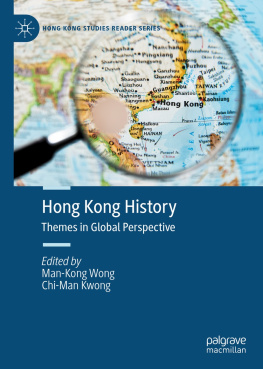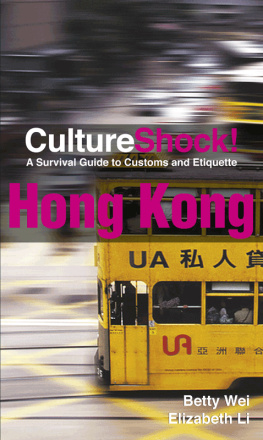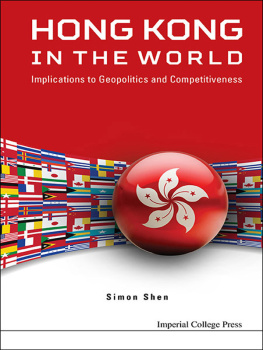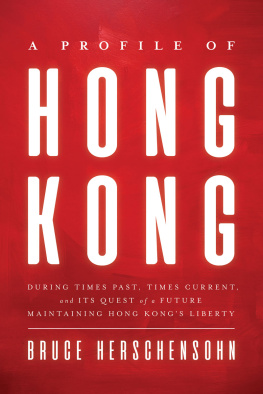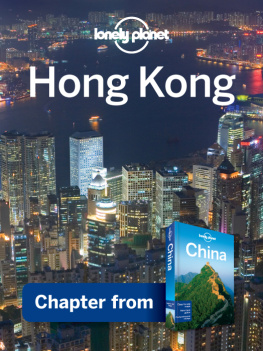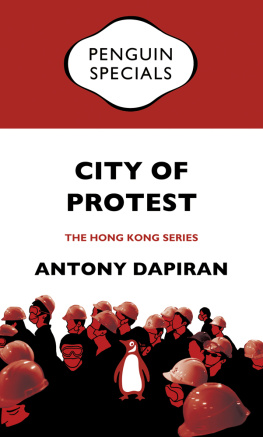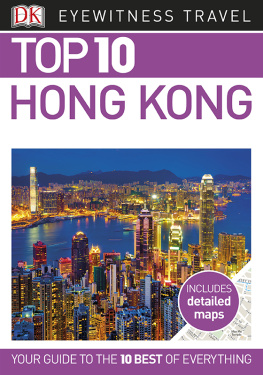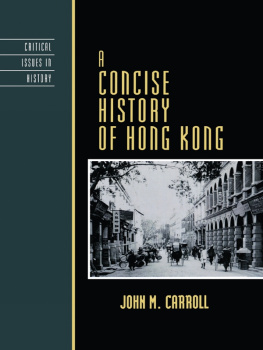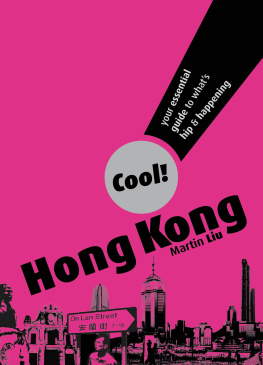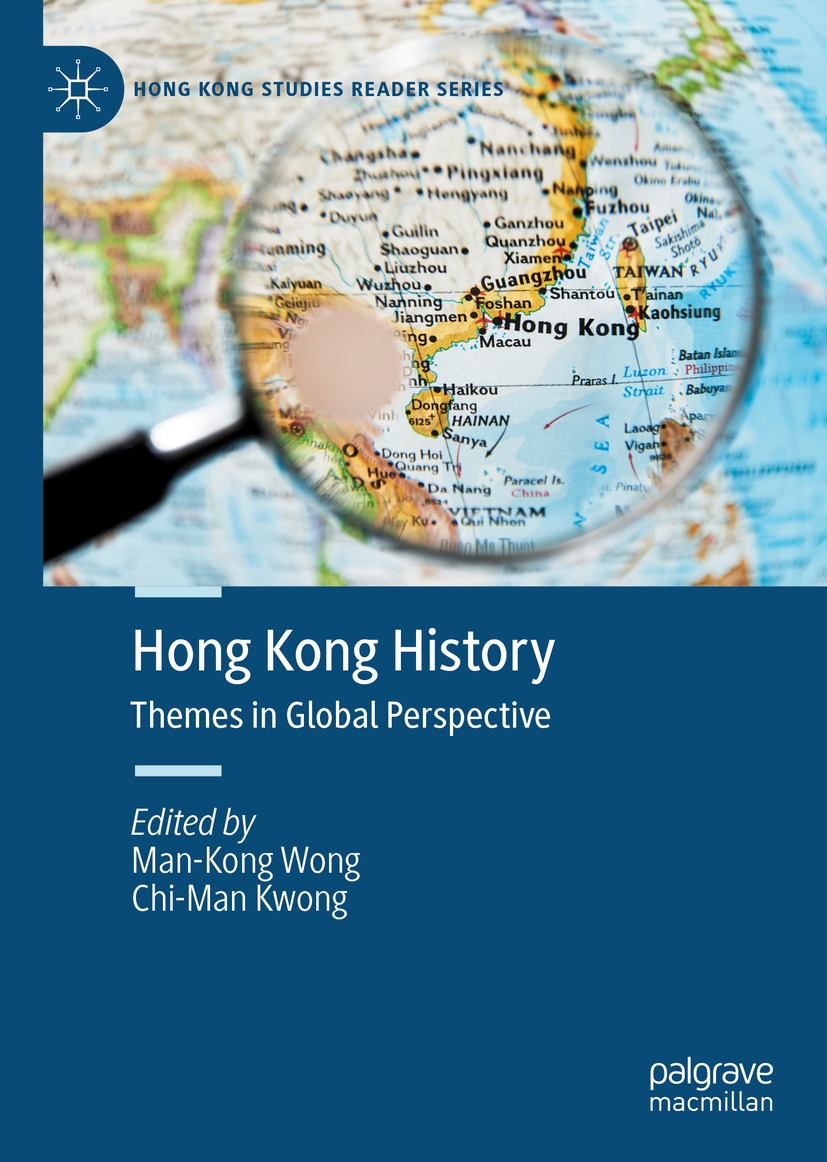Hong Kong Studies Reader Series
Series Editors
Brian C. H. Fong
Academy of Hong Kong Studies, The Education University of Hong Kong, Tai Po, Hong Kong
Tai-Lok Lui
Academy of Hong Kong Studies, The Education University of Hong Kong, Tai Po, Hong Kong
Stephen Chiu
Academy of Hong Kong Studies, The Education University of Hong Kong, Tai Po, Hong Kong
In recent years, Hong Kong society has undergone significant political, economic and social changes. Hong Kong Studies, as an interdisciplinary field of area studies that takes Hong Kong as a central subject of analysis, has become the focus of attention for both locals and non-locals from different backgrounds. There is a growing demand from local and non-local students, school teachers, scholars, policy researchers, journalists, politicians and businessmen to understand the development of Hong Kong in a more systematic way. The Hong Kong Studies Reader Series is designed to address this pressing need by publishing clear, concise and accessible readers to key areas of Hong Kong Studies including politics, history, culture, media, etc. The series aims to offer English-Chinese-Japanese trilingual guides to anyone who is interested in understanding and researching Hong Kong.
More information about this series at http://www.palgrave.com/gp/series/15923
Editors
Man-Kong Wong and Chi-Man Kwong
Hong Kong History
Themes in Global Perspective
1st ed. 2022

Logo of the publisher
Editors
Man-Kong Wong
Department of History, Hong Kong Baptist University, Kowloon, Hong Kong
Chi-Man Kwong
Department of History, Hong Kong Baptist University, Kowloon, Hong Kong
ISSN 2523-7764 e-ISSN 2523-7772
Hong Kong Studies Reader Series
ISBN 978-981-16-2805-4 e-ISBN 978-981-16-2806-1
https://doi.org/10.1007/978-981-16-2806-1
The Editor(s) (if applicable) and The Author(s), under exclusive license to Springer Nature Singapore Pte Ltd. 2022
This work is subject to copyright. All rights are solely and exclusively licensed by the Publisher, whether the whole or part of the material is concerned, specifically the rights of reprinting, reuse of illustrations, recitation, broadcasting, reproduction on microfilms or in any other physical way, and transmission or information storage and retrieval, electronic adaptation, computer software, or by similar or dissimilar methodology now known or hereafter developed.
The use of general descriptive names, registered names, trademarks, service marks, etc. in this publication does not imply, even in the absence of a specific statement, that such names are exempt from the relevant protective laws and regulations and therefore free for general use.
The publisher, the authors and the editors are safe to assume that the advice and information in this book are believed to be true and accurate at the date of publication. Neither the publisher nor the authors or the editors give a warranty, expressed or implied, with respect to the material contained herein or for any errors or omissions that may have been made. The publisher remains neutral with regard to jurisdictional claims in published maps and institutional affiliations.
This Palgrave Macmillan imprint is published by the registered company Springer Nature Singapore Pte Ltd.
The registered company address is: 152 Beach Road, #21-01/04 Gateway East, Singapore 189721, Singapore
This volume is dedicated to the late Professor Chi-kong Lai (19552021)
Foreword
This is an anthology whose time has come. Eleven scholars on the history of Hong Kong have come together to write on an equal number of topics spreading across a broad spectrum.
Following the close of the Pacific War, when Hong Kong, then still a British Crown Colony, had had time to recover from the ravages of Japanese occupation and its higher education restored to a semblance of its former self, scholars began to turn to the study of the Colonys past in growing numbers. After half a century or so, as the number of institutions of higher education expanded from one to more than eight eight supported by government grants plus a handful of private establishments. Scholars dedicated to Hong Kong studies increased proportionately, with notable concentrations at the University of Hong Kong, the Chinese University of Hong Kong, and the Hong Kong Baptist University. The current volume, though not necessarily representative, is nonetheless a reflection of the diversity of interests and the depth of scholarship in the field of Hong Kong historical studies.
As an historian, though only of modern China but one who grew up in Hong Kong, I have an abiding interest in things Hong Kong. Decades spent teaching abroad has not diminished my love for the place, which, in many ways, I regard as my spiritual home. I therefore read the book with more than just a passing interest. The array of topics chosen for the volume ranges from governance, international relations, to popular culture, identity, leisure, and entertainment, and to health care as well as the role of intellectuals. In each chapter, there is a summary of the history of the topic, followed by a survey of the current state of scholarship in the field, and ending with suggestions for further research. Reading the essays reminds me of the famous and much anticipated articles in The Journal of Asian Studies on the state of the art in this or that subject of Asian studies. In a sense, the essays in this volume share a similar goal to take stock of the state of scholarship and look ahead to the future in research.
While those with specific goals in mind may make a beeline for the chapters of their interest, this anthology can be read with great profit in its entirety as many topics are interlocked. The subject of identity, for example, is discussed or reflected upon not only in the chapter on identity itself, but also in chapters on built heritage, popular culture, football, and intellectuals, to name just a few.
Needless to say, the topics selected are not comprehensive. Nor are the authors reflective of all notable scholars in Hong Kong historical circles. To be inclusive in this manner would necessarily result in a very unwieldy volume. There is certainly room for a similar volume to examine, for example, the economic or business development of what is truly a financial centre in East Asia. The history of education, too, warrants attention as Hong Kong aspires to be an education hub in these parts of the world. The city has often been viewed as a receptacle of in-bound migrants and refugees, but surely some notice should also be paid to outbound migration, particularly the waves of emigration following political crises, real or perceived. Governance in the new era under the Peoples Republic of China is certainly deserving of scholarly attention, sensitive though it may be.
Finally, the editors are to be congratulated for bringing together a young or younger group of contributors at varying stages of their career development, including one who is still pursuing his doctoral degree. There is no nobler mission in our profession than nurturing the next generations of scholars. Thus, this collection of essays, as it looks into the past, is in more sense than one paving the way for the future.

